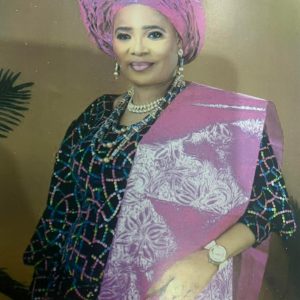‘Teacher of Light’ is the title of a biography of Chinua Achebe written by Ngozi Okonjo-Iweala and Tijan Sallah. What does it mean to teach light? Or, rather, what is light? If you know what darkness does, you would know what light means and the value it holds.
“When the moon is shining, the cripple becomes hungry for a walk.” With that proverb and its moon metaphor, Chinua Achebe established himself as a true teacher of light. My muse pushed the proverb to my presence as I read through an invitation to me from the Obi of Onitsha asking that I be part of this year’s Ofala Festival. It occurred to me that moment that it is not only the moon that gives light; culture is an illuminator, it also gives light, especially to people like me who routinely forget how to dance to ancestral summons.
I had the very rare privilege of being honoured by the Nigerian Academy of Letters with its Honorary Fellowship in August this year. From the North to the South, only three Nigerians were so honoured: I was one; my brother, culture scholar and media icon, Jahman Anikulapo, was one; the deeply intellectual Obi of Onitsha, His Majesty Igwe Nnaemeka Alfred Ugochukwu Achebe (Agbogidi), was the third, the biggest of us. At that ceremony, the Obi, who said he had looked forward to meeting me, met me, held me and has kept me close as a son.

So, his invite to the Ofala Festival came. The festival holds this week. I wish I could be there as the king’s guest; but wishes are not horses. Because the mountain here is blocking the view of the mountain over there, I cannot honour the invitation. So I prayed for the success of the festival. The Obi answered with a thunderous ‘Amen’.
Ofala? I checked and found that the word “Ofala” is an enduring offspring of the Igbo words ọfọ (authority) and ala (land). Ofala is history retold in performance; it is also culture renewed. It relives the Obi’s authority over the land and its people.
Ofala is Obi’s return from sacred silence. The festival celebrates royalty’s reborn, and the Ndichie’s renewal of loyalty to the king. In Iru Ofala and Azu Ofala, the king returns from ancestral presence to repossess his warriors with their red caps.
Etymologists say the word ‘festival’ derives from the Latin ‘festum’. Anthropologists have followed the word through centuries and civilisations as its meaning evolved across cultures and disciplines. Émile Durkheim and James George Frazer were influential figures in early anthropology. Scholars, in summaries, say that to Durkheim and Frazer, festivals are communal expressions of belief and solidarity. They say that with festivals, people renew their social and spiritual bonds. In Ofala, we see that they are right.
Leo Frobenius, German ethnologist and archaeologist, was in Africa on multiple occasions between 1904 and 1935. In the 1910s, Frobenius observed festivals in diverse places; he documented them and saw in them vital celebrations of familial, tribal, and religious life deeply rooted in ancestral history and beliefs.
The German observed right. Ofala and similar festivals bind communities; they celebrate social cohesion and keep sacred traditions alive. They fuse communal history with spiritual renewal and survival. In them, the rhythm of everyday life comes alive.
Ofala has grown to attract great brands. Its major sponsor is telecoms giant, Globacom, which has been there since 2011. I have very solid people in Globacom, which makes me an envoy of its greenery and deepens my interest in everything, particularly, festivals in which the company is involved.
The Yoruba tell their children: When you behold greatness, honour it with reverence. Tí o bá ri olá, pón olá lé. That is what I am doing here. It is what Globacom’s long partnership with the Obi and Ofala does; an act of reverence to the greatness of the culture that birthed them.
From Lisabi in Abeokuta to Ojude Oba in Ijebu-Ode, and from Ofala in Onitsha to other vibrant festivals across the land, Globacom’s partnerships reflect a philosophy rooted in understanding that just as a zebra is defined by its stripes, a people are defined by their culture. In other words, a person without culture is like a zebra without stripes. Sustaining culture is sustaining the people.
That is what corporate sponsorship does to cultural events. Obi’s people say in a proverb, “Nku di na mba na-eghere mba nri (The firewood of a community cooks for that community).” Globacom’s firewood has kept the flame of the festivals it supports alive, warming the hearts of millions who gather yearly to honour tradition.
To sponsor a festival is one thing; but to nurture its essence and future is another. Through resources and resourcefulness, community engagement, and cultural reverence, Globacom has redefined what corporate responsibility can mean. That is what I gleened from the firm. I agree with those words. Shakespeare writes in Hamlet that “The purpose of playing… is to hold, as ’twere, the mirror up to nature.” The playwright suggests that the aim of acting and theater is to reflect reality, showing “virtue her feature, scorn her own image, and the very age and body of the time his form and pressure”.
By supporting these festivals, the company, Glo, holds up a mirror to our shared identity, allowing us to see ourselves, our beauty, our resilience, our history.
Globacom became a major sponsor of the Ofala Festival in 2011 and has sustained the sponsorship yearly since then. Fourteen years on, like the Ekwe and the Udu, two Igbo drums beating the same rhythm, the company’s unwavering support has demonstrated that corporate success and cultural preservation can walk (and work) together. I read this out and my friend, the Igbo man, chipped in: “Egbe bere, ugo bere” (let the kite perch and let the eagle perch). When business and tradition walk together, culture gains.
The Yoruba routinely remind us that it is when we walk in the rain that we know who truly walks with us. Companies get involved in arts and culture for various reasons. Some, like leeches, place their names beside great traditions so as to benefit from the greatness. But what I see with Glo here is much more than profit in cash and kind. I see a telecoms giant, wholly indigenous, that has chosen to walk tall with the ancestors, deploying its enormous muscle to connect the past and their history to the world of the modern. One word defines this; it is renewal.
The rich who spend on their people’s historical and cultural essence are not frivolous; neither are they stupid. It is patriotism; if you like, call it cultural nationalism. The wealth of culture, like all wealth, grows when shared.
Cultural promotion yields dividends that confound account books. It stitches the torn fabric of community; it keeps the hearth of local enterprise burning, and rekindles pride in who we are and where we come from. It renews pride in our shared heritage. It makes us all richer.
If you do well the society notes and records all you do for posterity. The Alake and paramount ruler of Egbaland, Oba Adedotun Gbadebo said in 2017 that “Glo is number one in culture and support for the people. The company pioneered per second billing and others followed.” The Alake wrote that admirable testimonial eight years ago. The flag of patriotism is still there on the mountain top, flying.
In Ofala, the king dances the dance of joy of a fresh start. In the drumbeats and dance steps, the king delights that yam is harvested as proof of life, not of death. The beats retell a people’s story as told by the ancestors. A people are as strong as the stories they tell of themselves.
This weekend (Friday and Saturday), Onitsha will be draped in Globacom’s green, the colour of growth and renewal. Colour green in French is vert, the Italian call it verde, the Spanish, in Castilian voice, say it is verde. They all draw their source from the Latin word for green which is viridis, a word that denotes freshness and vitality. History is an endless rope. English words, verdant and viridian, have this same Roman ancestry. To viridis again belongs “a large family of other words that evoke vigor, growth, and life: virere (to be green, to be vigorous), vis (strength), vir (man, masculine singular), ver (spring), virga (stem, rod), perhaps even virtus (courage, virtue).” For those insights, check French professor of medieval history, Michel Pastoureau’s ‘Green: The History of a Color’ as translated by Jody Gladding.
Whenever I meet Globacom chairman, Dr Mike Adenuga Jr, I intend to ask him the specific reason he chose colour green for his giant.
I congratulate the Obi and Glo as the moon glows on Ofala. In the dance of that festival, drums speak, colours sing, and heritage dances. In perfect rhythm, the people breathe, act and rejoice as tradition bathes in innovation. With the moon shining brighter, Obi’s land is renewed this weekend. Congratulations, Agbogidi.
Stay ahead with the latest updates!
Join The Podium Media on WhatsApp for real-time news alerts, breaking stories, and exclusive content delivered straight to your phone. Don’t miss a headline — subscribe now!
Chat with Us on WhatsApp







